Lewis Spence and the Mysteries of Britain
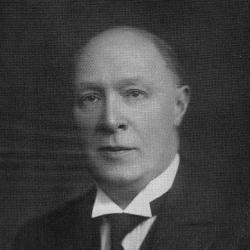 The first Scottish nationalist to contest a Westminster parliamentary seat in Scotland was the journalist, poet and folklorist Lewis Spence in January 1929. He polled 842 votes (a worthy 4.5% of the vote) in the Midlothian and Peebles Northern constituency which was won by Labour in a three-cornered fight with Spence and the Conservatives. Spence's Scottish National Movement had combined in 1928 with other Scottish Home Rule organisations, including the Gaelic revivalist Ruariridh Erskine's Scots National League, to form the National Party of Scotland (NPS). Later in 1934, the NPS amalgamated with the more conservative Scottish Party to form the modern-day Scottish National Party which exists today under the capable leadership of Alex Salmond.
The first Scottish nationalist to contest a Westminster parliamentary seat in Scotland was the journalist, poet and folklorist Lewis Spence in January 1929. He polled 842 votes (a worthy 4.5% of the vote) in the Midlothian and Peebles Northern constituency which was won by Labour in a three-cornered fight with Spence and the Conservatives. Spence's Scottish National Movement had combined in 1928 with other Scottish Home Rule organisations, including the Gaelic revivalist Ruariridh Erskine's Scots National League, to form the National Party of Scotland (NPS). Later in 1934, the NPS amalgamated with the more conservative Scottish Party to form the modern-day Scottish National Party which exists today under the capable leadership of Alex Salmond. 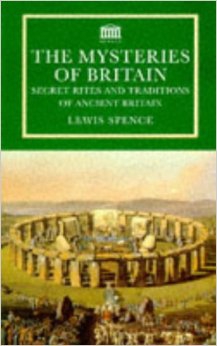 An idea of what animated Lewis Spence's political thought can be extracted from his 1905 book The Mysteries of Britain: Secret Rites and Traditions of Ancient Britain (reprinted in 1994 by Senate). The book is dripping with erudition and politically incorrect racial and ethnic analysis relating to the origins of the pre-Christian native religion of the ancient British Isles and the indigenous people of those islands who practised it. Spence concludes: "In no individual born in these islands does there not flow the blood of the Druid priests and seers, and I confidently rely on British mystics, whatever their particular predilections, to unite in this greatest of all possible quests, the restoration of our native Secret Tradition," arguing that "we Britons are much too prone to look for excellence outside of the boundaries of our own island" and "that we should so weakly rely on alien systems of thought while it is possible for us to re-establish our own is surely miserable."
An idea of what animated Lewis Spence's political thought can be extracted from his 1905 book The Mysteries of Britain: Secret Rites and Traditions of Ancient Britain (reprinted in 1994 by Senate). The book is dripping with erudition and politically incorrect racial and ethnic analysis relating to the origins of the pre-Christian native religion of the ancient British Isles and the indigenous people of those islands who practised it. Spence concludes: "In no individual born in these islands does there not flow the blood of the Druid priests and seers, and I confidently rely on British mystics, whatever their particular predilections, to unite in this greatest of all possible quests, the restoration of our native Secret Tradition," arguing that "we Britons are much too prone to look for excellence outside of the boundaries of our own island" and "that we should so weakly rely on alien systems of thought while it is possible for us to re-establish our own is surely miserable." He called for the "restoration of the entire fabric of British native mysticism" concluding "the missing stones of that fabric lie directly beneath our feet in the soil of our own island, and it depends entirely upon our patriotism and our vigilance whether they shall be recovered and once more fill the gaps and seams in the ancient edifice of British arcane wisdom."
|
|
| Wendy Wood |
Wood is also cited in the Preface to Spence's Mysteries of Britain book where he states: "I cannot close without expressing my sincere thanks to Miss Wendy Wood for the eight excellent drawings which she has made for this book. Deeply imbued with the Keltic spirit and versed in the details of Keltic antiquity, she has infused them with the richness of Keltic imagination and mysticism."
Scottish cultural and social nationalism
The leader of the Scots National League, Ruairidh Erskine, despite his aristocratic lineage, had close links to important Scottish socialist figures, such as John Maclean, the influential Scottish Marxist and a left-wing nationalist. However, despite his support for land reform and other socialist measures, Erskine was regarded as a reactionary figure by many on the burgeoning socialist left in Scotland because of his deep commitment and support for a Scottish Gaelic cultural revival, including everyday use and development of the language. Erskine was also close friends with another Gaelic revivalist, the journalist, William Gillies, another nationalist with close links to the socialist left, but who, like Erskine, was more interested in the revival of the Gaelic language and who campaigned to make Gaelic the national language of Scotland in order to counteract the increasing hegemony of the English language and English-speakers amongst the Scottish people, particularly the working classes in Scotland's towns and cities.Gillies also advocated close links to Irish nationalists and was involved in the establishment of a volunteer force called Fianna na h-Alba that was ready to use armed force to win Scottish independence. However, following advice by the legendary Irish nationalist leader, Michael Collins, the plan was abandoned after he argued in a letter that the militant Scottish nationalists "do not appreciate the particular difficulties they are up against," particularly with regards the lack of significant public support in Scotland for such action and the relative strength of the British state north of the border compared to the situation in Ireland.
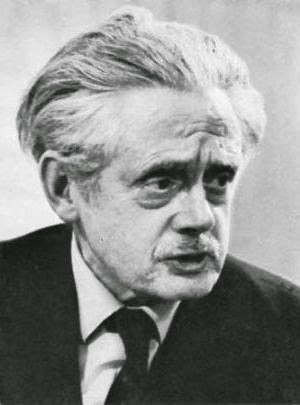 Another significant pre-war figure in politically incorrect Scottish nationalism was the celebrated Scottish poet, Hugh MacDiarmid (born Christopher Murray Grieve) a founder member of the National Party of Scotland, who in 1923, a year after Mussolini's rise to power in Italy, wrote two articles calling for a Scottish Fascism which would engineer as part of its programme a Scottish national revival and radical social justice across the country. MacDiarmid also set up a Scottish Fascist combat organisation called Clann Albainn which existed as an underground movement for many years, even after its founder finally embraced communism. Later, he would be expelled from the SNP because of his communist views. Upon joining the Communist Party, MacDiarmid, rather ironically, would eventually be expelled for his nationalist views!
Another significant pre-war figure in politically incorrect Scottish nationalism was the celebrated Scottish poet, Hugh MacDiarmid (born Christopher Murray Grieve) a founder member of the National Party of Scotland, who in 1923, a year after Mussolini's rise to power in Italy, wrote two articles calling for a Scottish Fascism which would engineer as part of its programme a Scottish national revival and radical social justice across the country. MacDiarmid also set up a Scottish Fascist combat organisation called Clann Albainn which existed as an underground movement for many years, even after its founder finally embraced communism. Later, he would be expelled from the SNP because of his communist views. Upon joining the Communist Party, MacDiarmid, rather ironically, would eventually be expelled for his nationalist views! Like many European nationalists, including the Flemish, Breton and Ukrainian nationalists, along with nationalists closer to home in Wales and Ireland, MacDiarmid saw opportunities for Scottish nationalism in the advance of Nazi Germany and the possible unravelling of the British state following a German invasion of England.
In 1941, he wrote to a friend: "On balance I regard the Axis powers, tho' more violently evil for the time being, less dangerous than our own government in the long run and indistinguishable in purpose." A year earlier he had written: "If the Germans win they could not hold their gains for long, but if the French and British win it will be infinitely more difficult to get rid of them" and, as a result, he hoped for a quick Nazi victory in order to advance the Scottish nationalist cause.
Towards the end of his life, MacDiarmid became the President of the 1320 Club (the year of the Declaration of Abroath which reaffirmed Scotland's determination to remain independent of England at the time) which was the ultra-nationalist forerunner to the ethno-nationalist Siol nan Gaidheal 'ginger group' which rose to prominance in the seventies and eighties.
"Scotland's Quisling"
|
|
| Arthur Donaldson |
The report by the MI5 agent that prompted their arrest was later released after Donaldson's death and it included a conversation with Donaldson which prompted MI5's belief that he was a National Socialist sympathiser and a potential pro-German collaborator.
The report read:
"During a long conversation, Donaldson gave great praise to Germany saying that England would be completely crushed by the early Spring; the Government would leave the country and that England's position would be absolutely hopeless, as poverty and famine would be their only reward for declaring war on Germany. Scotland on the other hand had great possibilities. We must, he declared, be able to show the German Government that we are organised and that we have a clear cut policy for the betterment of Scotland; that we have tried our best to persuade the English Government that we want Scottish independence and that we are not in with them in this war. If we can do that you can be sure that Germany will give us every possible assistance in our early struggle. The time is not yet ripe for us to start a visible campaign against England, but when fire and confusion is at its height in England, we can start in earnest. He then went on to tell them he had an idea in his mind for fixing up a wireless transmitting set in a thickly populated district in Glasgow or Edinburgh, in order to give broadcasts to the public. At the moment he is working very hard in an endeavour to combine all the Nationalists together as a unit, whereby they can strike out with great force when the time comes."After the war, during his leadership of the SNP, the party began to organise more professionally under his guidance and poll more credibly at elections which, as a result, culminated in the famous Hamilton by-election victory for the SNP in 1967. However, in 1969, Donaldson was replaced as leader of the party after a leadership challenge by the social democrat, Billy Wolfe, who helped pave the way for Alex Salmond's ascendancy in the party today.
Seed of the Gaels
Post-war, the flame of Scottish ethnic nationalism was mainly kept alive by Siol nan Gaidheal (SnG), which means in Scottish Gaelic - the Offspring or Seed of the Gaels!|
|
| Siol nan Gaidheal - kicked out of the SNP at the same time as Alex Salmond. |
In the 1980s, SnG produced a magazine called Firinn Albannach (Truth of Scotland) which was described as being "anti-communist, neo-fascist and sometimes violent in tone" in a survey of British and Irish political groups conducted by liberal academics from Manchester University.
Free Scotland
The Free Scotland Party, led by Brian Nugent, broke away from the SNP in 2004 over disagreements about the European Union (EU) and Scotland's future membership once independent. The party stood for an independent Scotland, independent of both the British state and the EU superstate, with Norway, an independent non-EU country, identified as a model for a future independent Scotland. The party contested a number of elections in 2005 and 2007 with Jim Fairlie, a former Deputy Leader of the SNP, standing as one of the candidates, but none were successful.A Scottish Future for Scottish Nationalists
Despite the current stranglehold on the party by 1968 leftists, the SNP is steeped in an ethno-nationalist tradition with roots that go back to its very origins and formation before the Second World War. Genuine Scottish nationalists now need to consider their position in Scottish politics. They must, in our opinion, unite and rally around a Scottish First-type organisation that can provide direction and meaning following independence which now seems highly possible, even if the NO campaign is temporarily able to halt the trend towards independence. It is obvious that the Tory/UKIP/BNP unionist position, bolstered by the religious sectarian cranks of the Orange Order, is no longer an option for serious ethno-nationalist activists and campaigners. The same logic also applies to the Scottish sovereignists of Free Scotland who should also be approached for their views on a possible realignment and amalgamation. In the meantime, we wish Scotland and its people well in their journey towards self-determination and freedom.Originally published at Civil Liberty



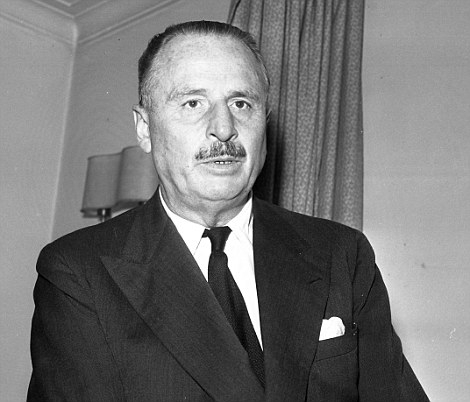

 del.icio.us
del.icio.us
 Digg
Digg
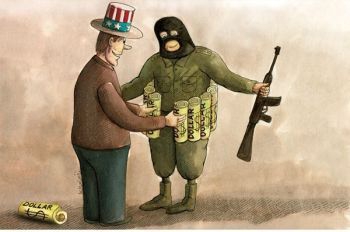
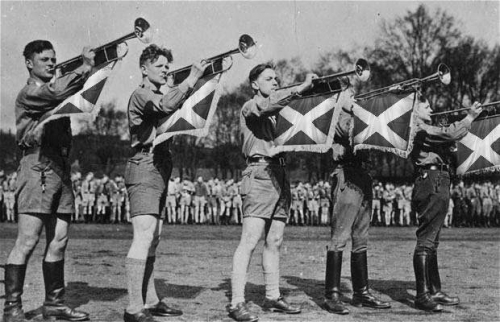

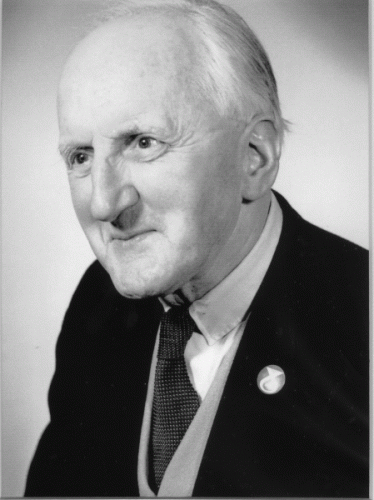
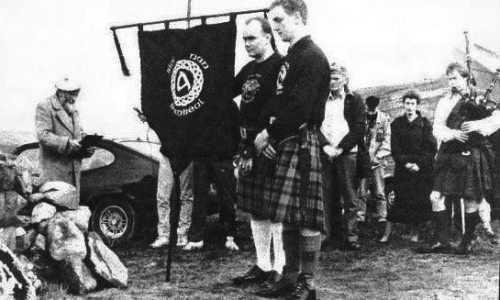

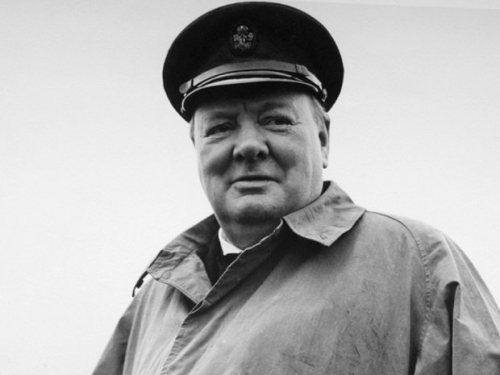

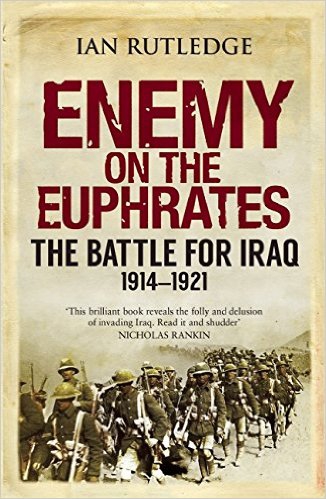 The Iraqi nation grew increasingly wealthy, as oil revenues rose from $500 million in 1972 to over $26 billion in 1980, an increase of almost 50 times in nominal terms.
The Iraqi nation grew increasingly wealthy, as oil revenues rose from $500 million in 1972 to over $26 billion in 1980, an increase of almost 50 times in nominal terms.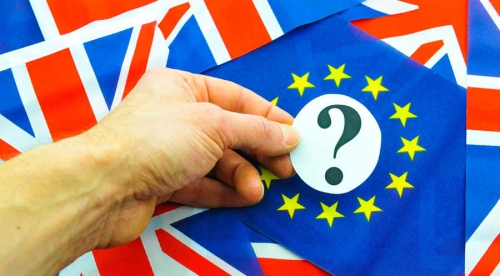
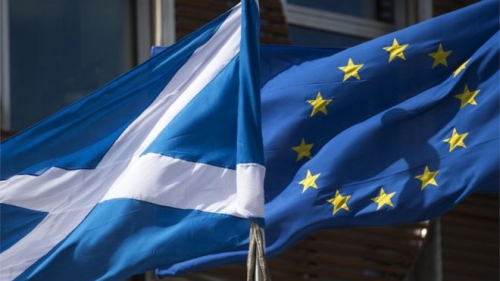
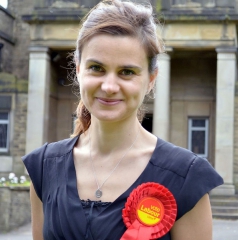 In the last stages of the campaign we had the tragic assassination of Jo Cox MP. The Remain camp cynically seized on this to boost their campaign. Anyone who voted Leave was a ‘hater’ and the language they had used to criticise immigration and the political class had led to a ‘climate of fear’ which in turn led to her death. Her two children were taken to Parliament to hear MPs pay tributes, and also to a big rally in London’s Trafalgar Square. This attempt to manipulate our emotions also failed. In fact many I know were disgusted by the shameful attempts to use the tragedy to boost a Remain vote. They were also angry at the way that their views were being falsely categorised and denigrated. If anything it made them more likely to vote Leave. I even had some friends who had voted Remain by post earlier, saying that they would have switched to Leave because of the disrespect tht had been shown, had they been given the chance! The ‘love versus hate’ theme has caused a lot of bitterness, anger, and division within our nation. Many Remain supporters are dismayed because it seems as if ‘hate’ has won. That’s one consequence of making the argument seem like a battle between good and evil – something the smug, condescending Left likes to do.
In the last stages of the campaign we had the tragic assassination of Jo Cox MP. The Remain camp cynically seized on this to boost their campaign. Anyone who voted Leave was a ‘hater’ and the language they had used to criticise immigration and the political class had led to a ‘climate of fear’ which in turn led to her death. Her two children were taken to Parliament to hear MPs pay tributes, and also to a big rally in London’s Trafalgar Square. This attempt to manipulate our emotions also failed. In fact many I know were disgusted by the shameful attempts to use the tragedy to boost a Remain vote. They were also angry at the way that their views were being falsely categorised and denigrated. If anything it made them more likely to vote Leave. I even had some friends who had voted Remain by post earlier, saying that they would have switched to Leave because of the disrespect tht had been shown, had they been given the chance! The ‘love versus hate’ theme has caused a lot of bitterness, anger, and division within our nation. Many Remain supporters are dismayed because it seems as if ‘hate’ has won. That’s one consequence of making the argument seem like a battle between good and evil – something the smug, condescending Left likes to do.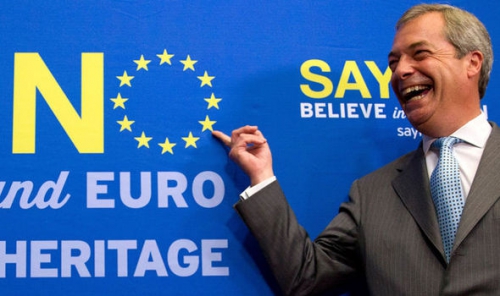
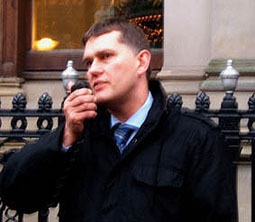 Pat Harrington
Pat Harrington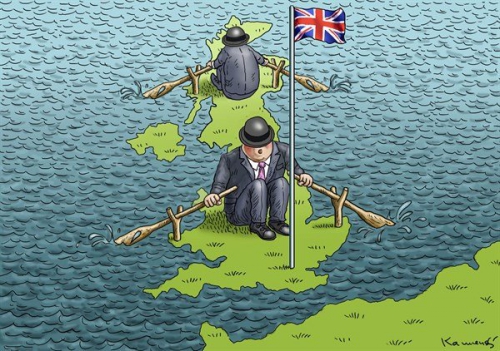
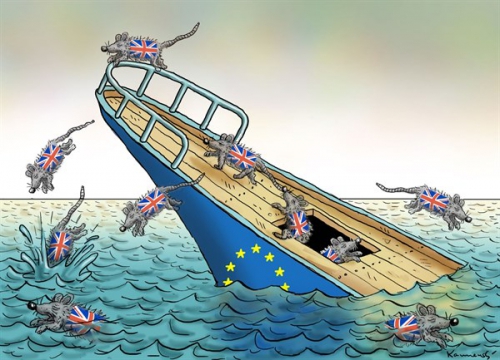
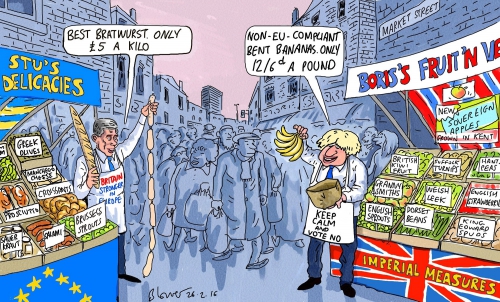
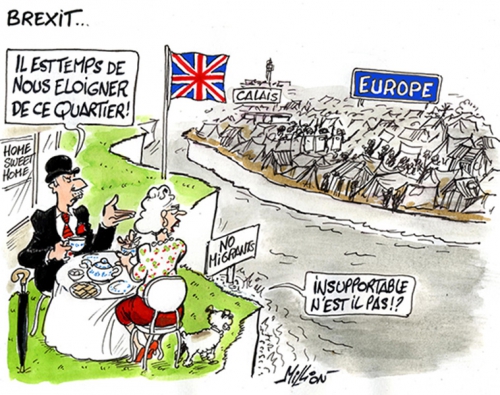
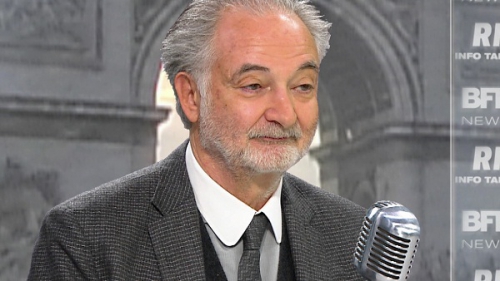
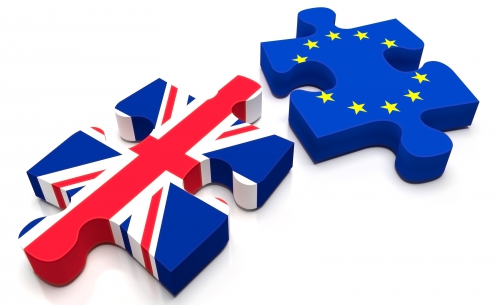
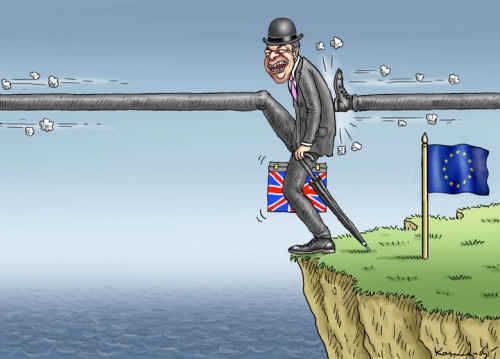
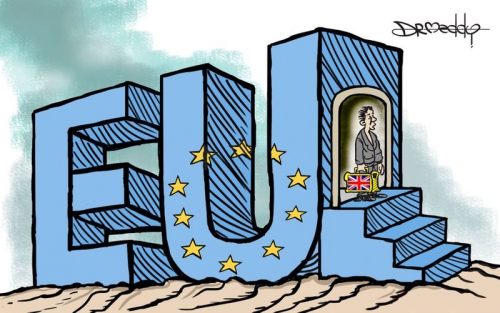
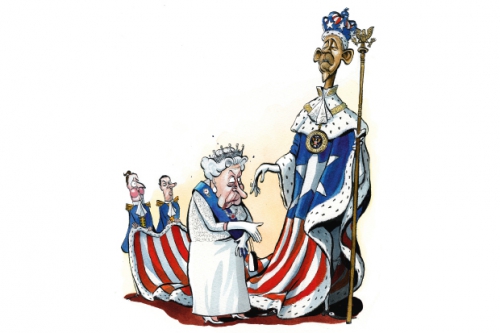
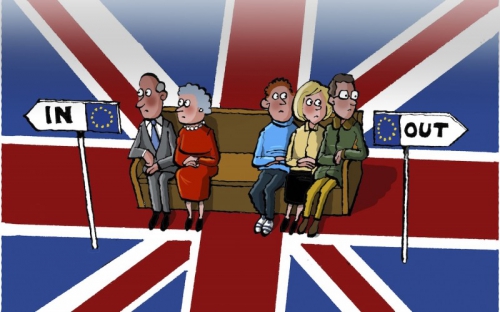
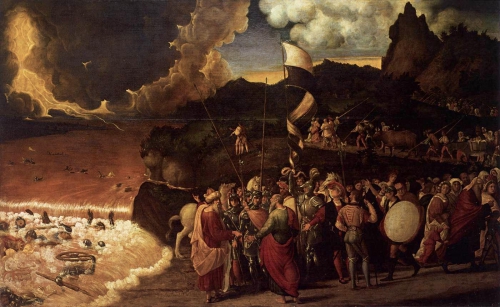
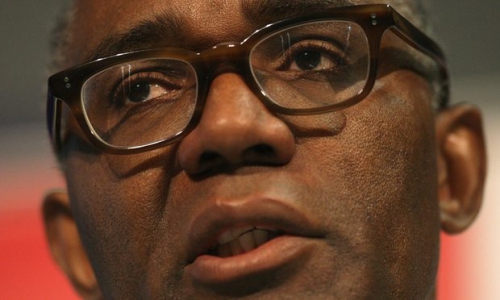
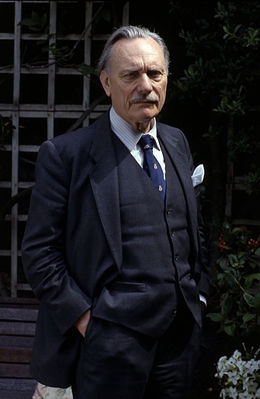 Phillips explique que depuis le discours d’Enoch Powell en 1968 qui valut à celui-ci sa mise à l’écart de la politique, tout le monde a retenu la leçon : « Adopter toutes les stratégies possibles pour ne pas parler de race, d’ethnicité (et plus tard de religion et de foi), sauf de manière anodine et plate. »
Phillips explique que depuis le discours d’Enoch Powell en 1968 qui valut à celui-ci sa mise à l’écart de la politique, tout le monde a retenu la leçon : « Adopter toutes les stratégies possibles pour ne pas parler de race, d’ethnicité (et plus tard de religion et de foi), sauf de manière anodine et plate. »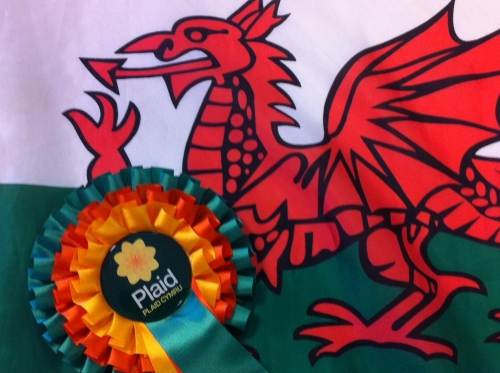
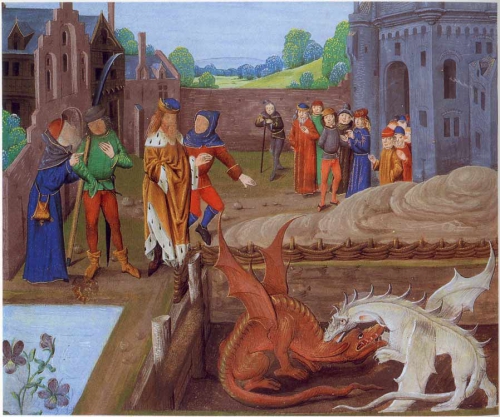
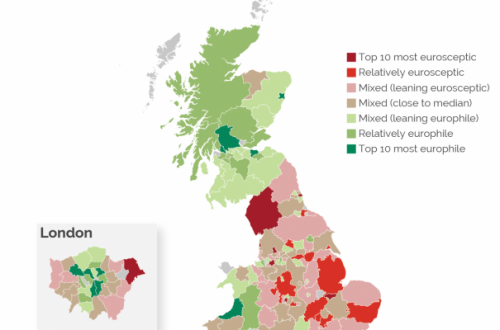
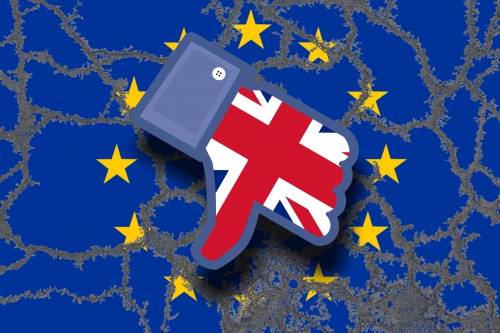
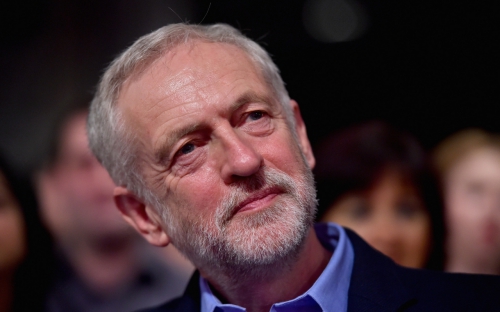
 2) Corbyn fait partie de cette “réaction de gauche”, comme Syriza, comme Podemos, même comme Sanders aux USA, de même qu’il y a une “réaction de droite”, comme le FN en France, les deux constituant les deux ailes d’une “réaction générale”... Mais “réaction” contre quoi ? “Contre de vrais dynamiques populaires qui s’expriment contre le Système, en faisant croire qu’ils (ces mouvements de ‘réaction’) les représentent alors qu’ils les canalisent et les contrôlent en vérité, parce qu’eux-mêmes (ces mouvements de ‘réaction’) sont en fait manipulés par la bourgeoisie et les oligarchies”, dit l’auteure en agitant sa pancarte “Trotski sinon rien” ; “Contre le Système, cette réaction de dynamique populaire passant par tout ce qui peut servir de véhicule pour ceux veulent exprimer leur position antiSystème”, dirions-nous en observant qu’il est préférable de ne pas faire compliqué quand on peut faire simple, d’autant plus que Trotski n’est plus parmi nous pour prendre les choses en mains.
2) Corbyn fait partie de cette “réaction de gauche”, comme Syriza, comme Podemos, même comme Sanders aux USA, de même qu’il y a une “réaction de droite”, comme le FN en France, les deux constituant les deux ailes d’une “réaction générale”... Mais “réaction” contre quoi ? “Contre de vrais dynamiques populaires qui s’expriment contre le Système, en faisant croire qu’ils (ces mouvements de ‘réaction’) les représentent alors qu’ils les canalisent et les contrôlent en vérité, parce qu’eux-mêmes (ces mouvements de ‘réaction’) sont en fait manipulés par la bourgeoisie et les oligarchies”, dit l’auteure en agitant sa pancarte “Trotski sinon rien” ; “Contre le Système, cette réaction de dynamique populaire passant par tout ce qui peut servir de véhicule pour ceux veulent exprimer leur position antiSystème”, dirions-nous en observant qu’il est préférable de ne pas faire compliqué quand on peut faire simple, d’autant plus que Trotski n’est plus parmi nous pour prendre les choses en mains.
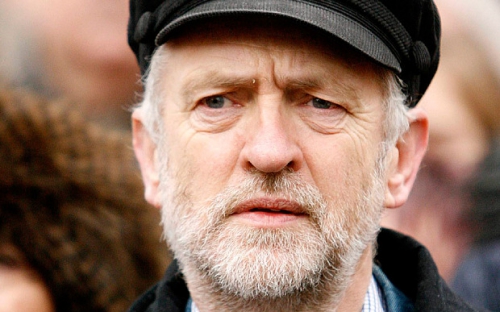
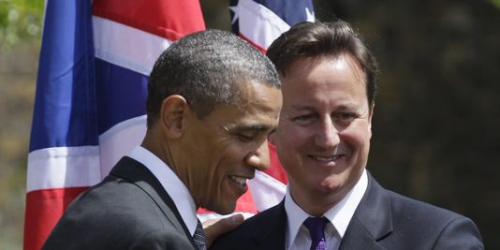
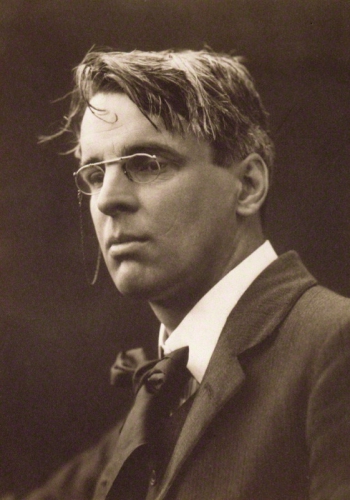
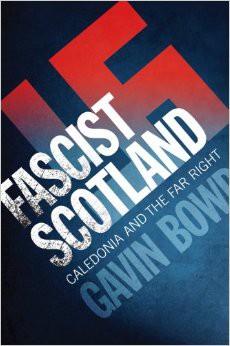 Een recente historische roman over Londen en nazi-Duitsland loodst willens nillens naar een recente historische studie over fascisme in Schotland. Ook de SNP heeft fascistische wortels en hoopte via een overwinning van nazi-Duitsland Schotse onafhankelijkheid te bekomen.
Een recente historische roman over Londen en nazi-Duitsland loodst willens nillens naar een recente historische studie over fascisme in Schotland. Ook de SNP heeft fascistische wortels en hoopte via een overwinning van nazi-Duitsland Schotse onafhankelijkheid te bekomen.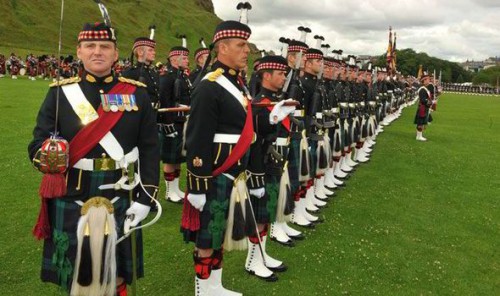



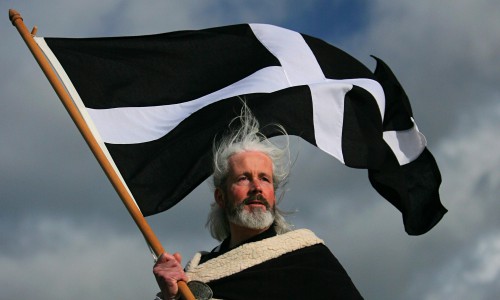
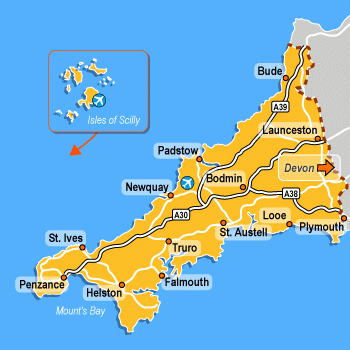 La Grande-Bretagne vient de reconnaître une nouvelle minorité nationale. Comme vient de l'annoncer le secrétaire d'Etat aux finances Danny Alexander (un Libéral-Démocrate), les habitants du Comté des Cornouailles, dans la pointe sud-occidentale de l'Angleterre, bénéficieront désormais des mêmes droits et de la même protection que les Ecossais, les Gallois et les Irlandais. Cela signifie surtout que le gouvernement et les corps officiels de l'Etat britannique doivent tenir désormais compte des intérêts spécifiques de la région quand ils prennent une décision. On ne voit pas encore très bien quels avantages concrets cette reconnaissance apportera au demi million d'habitants des Cornouailles. Le gouvernement de Londres a pris l'initiative de reconnaître la spécificité cornique suite aux accords-cadres de l'UE pour la protection des minorités.
La Grande-Bretagne vient de reconnaître une nouvelle minorité nationale. Comme vient de l'annoncer le secrétaire d'Etat aux finances Danny Alexander (un Libéral-Démocrate), les habitants du Comté des Cornouailles, dans la pointe sud-occidentale de l'Angleterre, bénéficieront désormais des mêmes droits et de la même protection que les Ecossais, les Gallois et les Irlandais. Cela signifie surtout que le gouvernement et les corps officiels de l'Etat britannique doivent tenir désormais compte des intérêts spécifiques de la région quand ils prennent une décision. On ne voit pas encore très bien quels avantages concrets cette reconnaissance apportera au demi million d'habitants des Cornouailles. Le gouvernement de Londres a pris l'initiative de reconnaître la spécificité cornique suite aux accords-cadres de l'UE pour la protection des minorités. 
Vom Begründer der Homöopathie Samuel Hahnemann stammt der Behandlungsgrundsatz: Ähnliches möge mit Ähnlichem geheilt werden.
Es muss allerdings präzisiert werden, dass der Behandlungserfolg nach Hahnemann ganz wesentlich auf der richtigen Dosis der sonst krankmachenden Wirkstoffe beruht. Die Selbstheilungskräfte des Körpers und der Seele werden durch die winzige Dosierung dieser Stoffe herausgefordert, mit Energie beliefert und für die Heilung aktiviert.
Wie ist es um die Selbstheilungskräfte eines Volks- und Kulturorganismus bestellt? Die Krankheitskeime sind in Form eines faschistoiden Fremd-Nationalismus und einer ebenso totalitären wie übergriffigen Fremdreligion ja längst eingedrungen, auch wenn der Patient sich nur phasenweise richtig elend fühlt, sich ansonsten aber des Lebens erfreut und von Arzneien nicht wirklich etwas wissen will.
Je wirksamer die Erreger, desto wirksamer wird die Therapie ausfallen müssen. Die Faschismus-Keule wird dann nicht mehr nur vom politischen Gegner so ausgiebig wie blindlings verabreicht, sondern von allen, die gesunden wollen, entschlossen ergriffen werden. Die Keule wird aber nirgendwo eine Swastika oder die SS-Runen aufweisen, denn dieser Faschismus wird nicht mehr der historische, vermeintlich so allbekannte sein. Einer der letzten Figuren des europäischen Faschismus der dreißiger Jahre des letzten Jahrhunderts, der ebenso exzentrische wie unbeirrte Oswald Mosley, hat sich genau darüber Gedanken gemacht und wurde so zu einem Vordenker der Neuen Rechten.
Ein Wanderer aus dem Nichts
Niemand hat auf der politischen Bühne Großbritanniens seine Karriere so gründlich ruiniert wie Sir Oswald Mosley (1896-1980). Spross einer Adelssippe niederen Ranges, im Ersten Weltkrieg schwer verwundet und später durch zwei Eheschließungen, etwa mit einer der Schwestern Unity Mitfords, gut vernetzt, blieb er stets „der kommende Mann, der niemals ankam“, wie Zeitzeugen urteilten. In keiner Partei hielt es der notorische Womanizer lange aus, ging von den Konservativen zum linken Rand von Labour, von dort in die Parteilosigkeit, um schließlich die New Party zu gründen, die sich schon bald als Totgeburt herausstellte. Ein Ausflug auf einen Ministersessel brachte ihn mit den sozialen Problemen der späten zwanziger Jahre in Berührung, die nicht mehr von seiner politischen Agenda weichen sollten. Sehr spät erst, am 1. Oktober 1932, gründete er mit der British Union of Fascists (BUF) eine Sammelbewegung für die bereits existierenden, bis dato unbedeutenden faschistischen Gruppierungen in England.
In vielen Punkten kopierte er nun seine Vorbilder aus Italien und Deutschland, ordnete eine Parteiuniform an, die seinen Anhängern zum Namen Blackshirts verhalf, baute einen schlagkräftigen Saalschutz auf (von einem jüdischen Boxer trainiert) und imitierte in seinen Redeauftritten die exaltierten Posen seiner Idole. Für die feine englische Art war der faschistische Mosley eine bizarre Erscheinung, „a figure of fun rather than fear“, wie manch bissige Kommentatoren bemerkten.
Inhaltlich zeichnete sich sein Faschismus allerdings durch eine starke Betonung des gesellschaftlichen Korporatismus („no player has the „liberty“ to play his own game“) und der wirtschaftlichen Abschottung des Inselreichs aus. Überhaupt ist die Programmatik der BUF sehr stark von linken Befindlichkeiten durchsetzt, schlägt einen revolutionären Ton an und verzichtet weitgehend auf einen rassischen Antisemitismus. Dennoch blieb Mosleys Bewegung angesichts der politischen Großwetterlage am Vorabend des Zweiten Weltkrieges der durchschlagende Erfolg versagt. Einst als politisches Talent mit Zeug zum Premierminister gehandelt, verspielte er nach kurzlebigen Achtungserfolgen den Rest an Renommee, um 1939 als „Bandenführer“ (Ernst Nolte) im East End Londons zu enden. Am 22. Mai 1940 wurden Mosley sowie 813 führende Aktivisten der BUF auf der Grundlage der Defence Regulations 18 B/ 18AA für die Dauer des Krieges interniert. Der britische Faschismus schien somit vollständig erledigt.
Und doch erschallten am 15. November 1945 vor dem Royal Hotel in London „Mosley, Mosley“- Rufe aus einer 800 bis 1000-köpfigen Menge, die auf ihr Idol wartete. Die Internierung und soziale Ächtung vieler Mitglieder der BUF hatte die Gruppe zusammengeschweißt und noch fester an den einstigen „Führer“ gebunden, dessen Verehrung beinahe kultische Ausmaße annahm. Der so Gefeierte zog sich zunächst zurück und formulierte 1947 seine geopolitischen Gedanken, die Europa zwischen den USA (Stichwort money) und Sowjetrussland (Stichwort mob) als eigenständige Dritte Kraft verorteten.
Viele seiner Mitstreiter, die noch den alten „Britain first“-Slogan im Ohr hatten, konnten oder wollten ihm darin jedoch nicht folgen. Und so kam es, dass der in Europa einmalige Versuch, mit einem prominenten Vertreter des Vorkriegs-Faschismus unmittelbar nach Kriegsende eine neue faschistische Kraft zu entfalten, misslang. Die 1948 gegründete Partei Union Movement (UM) fiel bei den Wahlen durch und wurde überdies auf ihren Veranstaltungen regelmäßig Ziel gewaltsamer Attacken anti-faschistischer Gruppen, die den Wahlausgang gar nicht erst abwarten wollten.
Für Uneinigkeit und Irritationen sorgten überdies Einzelinitiativen ehemaliger BUF-Kader, die sich dem Revisionismus verschrieben, die versuchten, Gewerkschaften, Sportclubs etc. zu infiltrieren, für die sogenannte Stille Hilfe ehemaliger SS-Angehöriger zu werben oder eine rechte Öko-Landwirtschaft aufzubauen. Oswald Mosley hingegen zog es nach den Wahlschlappen und allerlei internen Querelen zunehmend ins Ausland, wo er von nun an bestrebt war, den englischen Nationalismus zu internationalisieren und auf eine breitere, pan-europäische Grundlage zu stellen.
Englands letzter (erster) Europäer
Wie schon zu Beginn der dreißiger Jahre, als Oswald Mosley die faschistischen Bewegungen aus erster Hand studieren wollte, zog es auch den späten Mosley ins Ausland. Diesmal, um Bundesgenossen für seine Vorstellung einer geeinten europäischen Kultur unterschiedlicher Nationalismen, die unter dem Motto Europe-A-Nation stand, zu finden. Einer der ersten und umstrittensten Kontakte ergab sich im Nachkriegsdeutschland, wo Mosleys Gedanken in der Deutschen Reichspartei (DRP) sowie in deren Nachfolgeorganisation, der 1952 verbotenen, Sozialistischen Deutschen Reichspartei (SRP) zirkulierten.
Europäische Soziale Bewegung
Auch, wenn viele Regierungen dieser Länder von der Aufwartung Mosleys in nicht geringe diplomatische Verlegenheit gebracht wurden, waren die Reisen für sein Vorhaben nicht ganz fruchtlos. Immerhin konnten sich an die hundert Delegierte aller neo-faschistischen Parteien Europas 1951 im schwedischen Malmö zu einem Kongress treffen, an dessen Ende die Europäische Soziale Bewegung (ESB) als Dachorganisation gegründet wurde.
Sie sollte alle europäischen Idealisten zur gemeinsamen Verteidigung Europas gegen den damals noch herrschenden Kommunismus aufrufen und zusammenbringen. Diese Art einer neo-faschistischen „Ökumene“, in die sich auch Intellektuelle, wie der Franzose Maurice Bardèche einbrachten, scheiterte letztlich an den kleingeistigen nationalen Ressentiments, vor allem gegenüber Deutschland. Die Wunden des Krieges waren noch zu frisch. Auch die nationalen Parteien standen damals unter einem enormen Rechtfertigungsdruck von Seiten der heimischen Bevölkerung.
Ein Gespenst geht um in Europa
Der berühmte Eingangssatz aus dem Kommunistischen Manifest ließe sich auch auf die heutige Situation übertragen. Das Gespenst, zu dessen „heiligen Hetzjagd“ heute aufgerufen wird, ist allerdings der Rechtspopulismus, den man, so unscharf wie möglich, als Neo-Faschismus klassifiziert. Dabei ist eine Rehabilitierung des faschistischen Grundgedankens, den Mosley in Anlehnung an Mussolini im Symbol des Liktorenbündels konzentriert sah, gerade in der heutigen Situation zumindest bedenkenswert. Dieses altrömische Amtssymbol verdeutlicht, wie sehr eine einzelne Rute schwach und zerbrechlich, alle „Fasces“ zusammen aber hart und nicht zu brechen sind. Schon der Rechts-Esoteriker Julius Evola sprach sich in den 60iger Jahren für solch eine Rehabilitierung aus, die darauf abzielte, auch diesem historischen Phänomen Gerechtigkeit widerfahren zu lassen, wie man gegenüber dem Kommunismus zu tun bereit war.
„Faschismus reloaded“ ein Ding der Unmöglichkeit
In der Tat wäre angesichts der eingangs genannten exponentiellen Bedrohungen der europäischen Gesellschaften ein Mobilisierungspotenzial vonnöten, das kaum andere historische Vorbilder hätte. Trotzdem hätte man es mit einem Modell zu tun, das mitnichten ein „Faschismus reloaded“ wäre. Es bräuchte nämlich keinen Hitler- oder römischen Gruß, keine offensive Gewaltanwendung, keinen Antisemitismus, keinen Revisionismus, keinen engstirnigen Nationalismus, nicht einmal eine einzige überragende Führergestalt.
Was es hingegen bräuchte, wäre ein Korpsgeist, der alle Beteiligten beseelen würde, eine paramilitärische Phalanx und einen Gleichschritt, der die fatale Vereinzelung aufheben und die Kraft einer entschlossenen Gemeinschaft fühlbar machen würde. Es bräuchte den Geist der Selbstbehauptung und Würde, der klassenübergreifend zu gelten hätte und der den Einzelnen wieder an seine Wurzeln heranführte, um ihn der Automatisierung, der Ohnmacht und der Apathie zu entreißen. Letztlich bräuchte es den Mut zum Tabubruch, gleichsam zur Pubertät, um der überreifen Fäulnis vergreisender Gesellschaften eine kühne Dynamik entgegenzusetzen. Und alles dies europaweit. Die Frage bleibt, ob es offen und für alle sichtbar geschehen kann oder ob dies nur noch im Untergrund möglich sein wird. Dort sind die Reihen bekanntlich geschlossener.